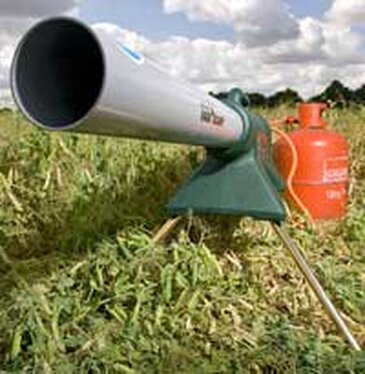|
‘The facts never speak for themselves.’ (Geoff Pelham) Res ipsa loquitur. A Latin phrase. It means: the facts are so obvious that no further explanation is needed. ‘Anita is under-performing, despite having been trained. She is clearly incompetent.’ Right? Wrong. Anita may well be incapable of doing the job, but the facts (under-performing; trained) don’t necessarily, of themselves, lead to that conclusion. What if, for instance, she’s trying to cover for an absent colleague at the same time as doing her own job, or if elements have changed that weren’t covered by the training? The focus on Anita, in isolation as an individual, is just one way of construing a situation. If we were to zoom-out, as with a camera, who and what else comes into view and what questions could that raise? For instance: Who sets the performance standards? What are they based on? Are they fair, realistic and achievable? What other factors could influence Anita’s performance, such as quality of line-management relationship, access to the right and timely information and resources, critical dependencies on other teams? The facts never speak for themselves. When have you experienced or enabled a paradigm shift, a radical re-framing, a surfaced personal-cultural assumption, that changed everything? How did you do it? What then became possible? Would you like help with thinking outside of the box? Get in touch! [email protected]
22 Comments
‘It’s front-to-back!’, my daughter would say with a smile – when she was two. It was creative genius, depicting the meaning of the phrase, back-to-front, in how she structured the sentence itself. It’s a word play suggesting that something is, somehow, the wrong-way-round. This notion of wrong-way-round itself suggests implicitly that there is a right-way-round. Our notions of right-way-round are usually an indicator of convention, function or perspective rather than something that is, per se.
Take, for instance: ‘The West is in the East if you’re standing in Vladivostok.’ The statement only makes sense if we hold a Eurocentric view of the world, in which countries on the left of a flat, traditional map are regarded as the West, corresponding to directions on a compass, and those on the right are (progressively) East. If we form the map into a globe, however, everywhere is relatively West and East of everywhere else, marked only in relation to other places by relative direction and distance. We could instead take, say, a geo-political view in which places are distinguished or related by location, terrain, access or resources. Or we could take, say, a socio-anthropological view in which places are distinguished or related by history, tradition, language and culture. There is no one, definitive, way of looking at and making sense of what is in the world. Whatever statement I make reveals an implicit personal-cultural construct; a hidden backdrop of beliefs, values and assumptions. How easy do you find it to view things front-to-back at work, to notice, reveal and challenge existing paradigms and perspectives? If you do it well, what then becomes possible? Do you need help with front-to-back thinking? Get in touch! nick-wright.com It’s hard to think outside our own thinking to do the as-yet unthinkable, yet that’s often where real transformation takes place. How do you do it? How do you enable others to do it? What does a kilogram weigh on the moon? Is grass still green when it’s dark? I had this fascinating conversation with a chemistry student last night about what can be known to be true and how. We touched on philosophy, theology and science and I left feeling like my brain had been bent and twisted in different directions. One of the key principles that came through is that we base our understanding of the world on what we believe or know to be true already. It’s a form of projection that creates a psychological sense of certainty and enables us to predict, test and move on. It’s also a phenomenon that can leave us profoundly mistaken – without realising it. I listened to a radio interview with the controversial film director Quentin Tarantino. When asked to comment on the quirky, sudden and often dramatic mood swings in his films, Tarantino responded, ‘Who do you imagine I am directing in my movies – the actors or the audience?’ He went on to paint an image of himself standing invisibly behind the cinema screen like the conductor of an orchestra. The audience watches the film. He conducts the audience. The audience is the orchestra. It was a stunning example of challenging the assumed, reframing an experience, revealing the unexpected. The moral of this story? Not everything is as it appears to be or what we may want or expect it to be. We are easily unaware or deceived. It’s why ‘critical reflective practice’ is so valuable and important as professionals, leaders, managers, teams and organisations. It’s about taking conscious, proactive steps to challenge, test and transform our awareness, assumptions, thinking, stance and practice – enabling greater inspiration, resourcefulness, resilience and effectiveness. (See: Thompson & Thompson, The Critically Reflective Practitioner, 2008; Bassot, The Reflective Practice Guide, 2016). As leader, OD, coach or trainer, what have been your experiences of critical reflective practice? Where have you seen or experienced real transformation, radical re-framings or paradigm shifts? Can I help you develop critical reflective practice? Get in touch! [email protected] ‘A penguin walks through that door right now wearing a sombrero. What does he say and why is he here?’ (Google) I searched Google recently for ‘weird interview questions’ and, among others, the vivid, sombrero-donned penguin example flashed up onto my screen. It was definitely my favourite. I mean…who would think to ask that question never mind try to answer it? Its brilliance lays in its strange unexpectedness, zany imagery and sheer randomness. It’s a fantastic example of lateral thinking, a provocative-evocative approach designed to disrupt ordinary thinking, routines and expectations. A person’s response to such questions can reveal their personal and cultural assumptions, projections, imaginative-creative skills – and sense of humour! It can also stimulate fresh energy, insights and ideas. The jolts we experience mentally, emotionally and physically when we encounter such questions, especially if they come out of the blue…or red…or yellow…or any other colour that may appeal to or disturb us…can feel like, all of a sudden, riding a rollercoaster at breakneck speed with no seatbelt on – like being catapulted, confused, into strange and unusual worlds. Think Jesus and parables, Zen and koans or, if you prefer, Alice and Wonderland. Leandro Herrero (Disruptive Ideas: 10+10+10=1000, 2008) proposes that the impact of a few simple, such disruptive ideas can be like dynamite. They are likely to be controversial and counterintuitive, risk being ridiculed or dismissed – and yet are disproportionate in their ‘potential to impact on and transform the lives of (people and) organisations.’ Sometimes small things really are big. Where have you seen or experienced simple questions, ideas or actions create earth-shaking movement? It was great fun to work with a professional cartoonist. Bill Crooks has a remarkable gift for capturing, expressing or stimulating a thought, an idea or a feeling with a few quick strokes of a marker pen. We were leading a workshop that aimed to reveal and challenge the assumptions that participants bring to customer, client and beneficiary relationships. Bill quickly sketched a large person looking down at a small person through a magnifying glass. He then asked the group, simply, ‘What do you see?’ Participants looked down, thought, discussed then spoke up. ‘We – the organization – are the large person. We are scrutinising the client.’ The inference here was that the organization holds the power, the influence, the prerogative to evaluate and to choose. The wider group agreed. Bill responded provocatively, ‘And what if, unknown to us, the client is connected to unseen networks that dwarf the power, the influence, the prerogative of our organization? Who now is looking down on who?’ It was a sobering moment. Silence hit the room. How easily we make assumptions about ourselves, about others, based on what we see, know or think we understand. Imagine, for a moment, the leader who believes that he or she holds far greater power and influence than individual front-line staff. Hold that thought. And now: think of front-line staff who are connected by social media to key networks and influencers in the organisation’s wider arena. Who now is looking down on who? We are talking here about the dramatic power of re-framing. As we change the metaphorical frame through which we view a person or situation, different pictures, perspectives, opportunities and challenges can emerge, change colour/shape or come into sharper focus. Shift the frame, shift what appears, how it feels and what options become available to us and to our clients. What have been your best experiences of reframing or achieving a radical paradigm shift? How did you do it? ‘Constructive counterfactualisation’. What on earth?! I can almost hear the cogs whirring. This was the title of an intriguing seminar I attended yesterday led by Professor Chris Oswick. The main focus was on how to break out of proverbial boxes that trap our thinking and to find ways to challenge our taken-for-granted assumptions in order to broaden the range of options available to us. It reminded me a lot of DeBono’s lateral thinking – except with much more complicated-sounding language.
The main technique we tried was to create deliberate dissonance, e.g. by, ‘making the strange familiar or the familiar strange’ (Foucault). The idea here is to present the strange (e.g. an idea that contrasts starkly with that which we hold currently) as having some (surprisingly) similar qualities to that which seems more normal or self-evident to us, or to present something familiar and ordinarily unquestioned in such a weird or unusual light as to make it appear and feel strange to us after all. Here’s an example. We often think of global poverty and related suffering as caused or exacerbated by military conflict, e.g. between two or more different ideologies, tribes or nations. We only need to look as far as Yemen in recent months to see this horrifying phenomenon played out in practice. This observation vis a vis ‘poverty & conflict’ could be developed into a hypothesis that, say, military intervention is the antithesis to development. It has a face-value appearance of plausibility about it. Yet now take, for instance, a scenario in which the military provides sufficient security (e.g. from an external aggressor) to allow sustainable development to take place. It flips the equation so that an alternative hypothesis could be juxtaposed that, in X context, military intervention is a necessary condition for development. This way of posing contrasting propositions to create dissonance and challenge accepted assumptions and norms can be powerful. How could you use it as leader, coach or OD? Reflexivity – a research word. It means that when we explore something such as a strategy for the future or an idea for a significant life change, who we are in relation to what we are looking into will influence what we see – and what we don’t see – how we do it and what conclusions we draw from it. This is because our subconscious personal and cultural assumptions and biases along with our psychological filters and defence mechanisms can create blind spots and hot spots. Gareth Morgan characterised the blind spot phenomenon as, ‘People have a knack for getting trapped in webs of their own creation.’ In other words, we can get stuck in our own way of seeing things. Similarly, Morgan characterised hot spots by, ‘What passes for rationality is often irrationality in disguise.’ That is, we may mask and try to justify our emotional responses by rationalising them. Reflexivity is the skill of identifying and addressing such spots to minimise their influence. Blind spots are what we are not thinking about. They touch on what is invisible to us. They are concerned with (un)awareness. They are created by our beliefs. They reflect the paradigms we hold. If we challenge them, it can feel mind-bending. Hot spots are what we are not talking about. They touch on what is sacred to us. They are concerned with relationships. They are created by our values. They reflect the passions we hold. If we challenge them, it can feel heart-wrenching. Here are some reflexive questions that can help. Blind spots: What are we assuming? What appears self-evident to us and why? Who do we need to involve in our exploratory process? How can we draw in contrasting perspectives and ideas? Hot spots: What are we avoiding? How will we handle power dynamics and vested interests? What will we do if we feel threatened or defensive? How can we hold robust conversations that feel safe? How do you deal with the hot and the blind? ‘Thud…BANG!’ At its worst, it’s every 2.7 minutes. They go off every day, 24 hours a day, 7 days a week, 9 months a year, where I live. Farmers use these gas guns – which are like small canons – to attempt to scare birds from their crops. They are very loud…and largely ineffective. In an attempt to improve their effectiveness, farmers are increasing the number they install in their fields and the frequency of the bangs. It’s as if more canons and more bangs will scare away more birds.
The problem is: it doesn’t work, it drives local residents crazy and it is actually counter-productive. Research shows that birds quickly ignore the bangs. They realise there is no actual threat. The more the bangs, the more the birds become immune to them. In fact, research also shows that, over time, the birds are actually attracted by the bangs, using them to locate sources of food. So, apart from the dubious ethics of using these guns close to residential areas, what is going wrong here? The simple answer is that these farmers have inadvertently locked themselves into a pattern of faulty assumptions and self-defeating behaviour. Their desperation to protect their crops drives them away from rational thought to a more defensive and defended stance. If they could find a way to step back far enough to revisit the results they desire and the factors that support or undermine them, they could potentially discover new tactics that would make a more positive difference. Organisations call this stepping back to examine and challenge implicit assumptions, to reflect on and address causal and influencing relationships, strategy mapping or creating theories of change. Professionals who apply the same principles to their work call it reflective practice. It’s about being willing to pause-reflect-act in the midst of the busy-ness of doing in order to think widely and deeply, conduct research, learn from experience and produce better results. How do you do it? What’s your angle? We use this expression to check out a perspective, a way of seeing things, of presenting things. The angle itself is designed to convey something as interesting, eye-catching, novel, unique. There’s another way of thinking about ‘angle’ too. A friend commented yesterday that, if we look at a protractor, we see how a slight shift at the centre leads to a significantly different end point at the perimeter. The shift represents a change of direction and trajectory.
So here we are at the start of a New Year. The decisions, the angles, we take, here and now, will influence where we finish in the future. They may seem small and insignificant in the moment yet, each time we change our angle, the direction in which we face, we change our trajectory too. In many aspects of life, the cause-and-effect consequences are not as linear and predictable as lines on a mathematical tool. Nevertheless, it’s as if every choice and decision, in some way, counts. We can also look at our lives, circumstances, choices and decisions, from different angles. Leaders, coaches, OD and trainers refer to this as ‘reframing’. It could involve, say, looking at ourselves, our relationships and situations through different metaphorical frames or lenses, from different angles or vantage points, from different points in time or stakeholder perspectives etc. This can open up new insights and possibilities that may otherwise lay obscure or hidden to us. I believe this is where coaching to develop critical reflective practice can be so important, valuable and useful. It can enable us to grow in awareness of our beliefs, values, assumptions and preoccupations – our default angles, if you like. It can enable us to consider fresh options and implications that will guide our focus, attention, behaviour, decisions and actions. It can enable us to live authentic lives and to work with greater insight and freedom. So – what’s your angle? We were talking about focus in leadership and coaching and my colleague, Pav, looked at me intently and said, quite simply, ‘Keep your eye on the squirrel!’ It did make me laugh. It’s a fun, colourful image that cautions us to stay focused, to avoid getting side-tracked, to beware of – like Alice in Wonderland – falling down proverbial rabbit holes (if you can forgive the mixed metaphor). Or to quote guru Stephen Covey: ‘The main thing is to keep the main thing the main thing.’
I can see the sense in this. If we work to achieve a vision, to fulfil a strategy, it can enable us to be effective and efficient, to prioritise and reach goals. It can also help us to avoid dissipating energy, wasting resources. It’s a reason why, when coaching, I will ask clients questions such as, ‘What are we here to do?’, ‘What are you hoping for?’, ‘What is possible if we do this well?’, ‘What would a great outcome look and feel like?’, ‘How will we know when you have reached it?’ The flip side is that we can become so focused, fixed, planned, organised, that we may miss all kinds of serendipitous adventures and emergent opportunities that arise. A friend, Rob, commented on this recently: ‘When we look back in life, many of our best relationships and experiences came as a result of things which, on the face of it, at the time, appeared to go horribly wrong.’ A question for leaders, coaches and clients could be: how to be well-focused – and yet open to the potential of each moment? Finally, what appears to us to be 'the main thing', the most important thing, depends a lot on what we believe, our values, how we are feeling, our cultural paradigm and what frame of reference we adopt. A shift in language, perspective or circumstance can change the whole way in which we view and construe something or someone. A related challenge for leaders, coaches and clients may be, therefore: how to keep our eyes on the squirrel – without becoming blinded or fixated by it..? |
Nick WrightI'm a psychological coach, trainer and OD consultant. Curious to discover how can I help you? Get in touch! Like what you read? Simply enter your email address below to receive regular blog updates!
|










 RSS Feed
RSS Feed